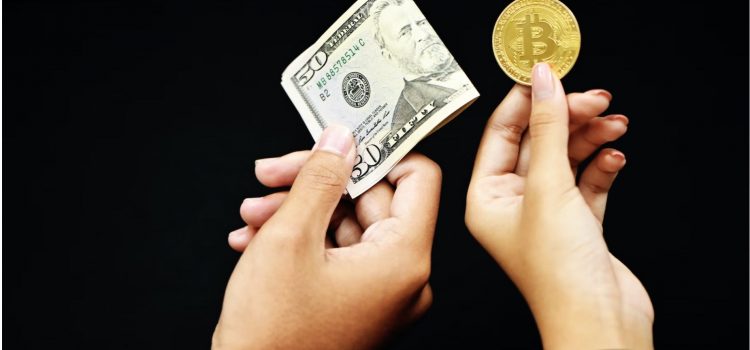
This is a free excerpt from one of Shortform’s Articles. We give you all the important information you need to know about current events and more.
Don't miss out on the whole story. Sign up for a free trial here .
Can the government regulate cryptocurrency? What challenges do regulators face?
The cryptocurrency industry has been marked by volatility, bankruptcies, and scandals, and after the recent implosion of crypto exchange FTX, many are calling for long-overdue regulation. However, regulators are struggling to write laws as no one can agree on the fundamentals of the industry.
Keep reading to learn if the government can regulate cryptocurrency and why it’s a challenge.
Regulating Cryptocurrency
Crypto is struggling. Once valued at almost $3 trillion, the industry is today valued at less than $900 billion and has been marred by a series of stock implosions, bankruptcies, and scandals. The latest headlines, in which crypto exchange FTX filed for bankruptcy after losing billions of dollars for investors, have renewed calls for oversight of what has, until now, been a largely unregulated space. However, can the government regulate the cryptocurrency industry when lawmakers struggle to agree on some fundamental aspects of it: Is crypto a currency, a commodity, or a security? And how do you regulate a decentralized global industry where no one is in charge?
In this article, we’ll first explain why the cryptocurrency industry has become so volatile. Then, we’ll discuss if the government can regulate cryptocurrency by exploring the challenges lawmakers face.
A Volatile Industry
Before discussing if the government can regulate cryptocurrency, it’s important to understand what has created the demands for regulation. Crypto has long been famous for volatility, but the pandemic made it worse: The industry’s standard-bearer, Bitcoin, jumped around by tens of thousands of dollars beginning in 2020 (it hit $68,000 in November 2021, then $16,000 a year later), and other prominent cryptocurrencies, like Ether, have likewise seen their values dramatically rise and plummet.
2022 was particularly difficult. In May, a crypto network called Luna collapsed, wiping out $60 billion dollars. In July, several prominent crypto firms—a hedge fund, a brokerage firm, and a lender—each filed for bankruptcy. This set the stage for the rise of FTX, which scooped up several floundering companies, purportedly to consolidate and stabilize the industry.
FTX’s reputation as crypto-savior came to an abrupt end in November, when a major investor abandoned the company and prompted a virtual bank run on its reserves. FTX didn’t have the liquidity to cover the billions investors suddenly demanded and quickly declared bankruptcy. The company’s founder, Samuel Bankman-Fried, has since been arrested and charged with fraud and money laundering, among other offenses.
Calls for Regulation
In the wake of FTX’s implosion, which is being compared in scale to that of commodities trader Enron in 2001, many are calling for consumer protections—not only to guard against this kind of volatility but also against scams: hacking, theft of assets or records, loss of access to funds, and fraud of the sort that FTX perpetuated.
These calls for the government to regulate cryptocurrency come as crypto starts to resemble a more traditional finance industry—lending, storing value, providing leverage and liquidity—and investors are discovering that the industry’s freedom from oversight, once touted as its greatest strength, is actually a weakness. Not only does it provide cover for criminal activity like money laundering and illegal drug and weapons sales, but it also leaves investors vulnerable to financial risks and fraudulent actors.
Regulatory Challenges
However, when considering if the government can regulate cryptocurrency, it’s important to understand that the industry differs from traditional finance in some fundamental ways, creating challenges for regulators.
First, no one is entirely sure how to define cryptocurrencies. Their original developers promoted them as replacements for national currencies, but they haven’t lived up to that promise: Few retailers, digital or otherwise, accept them as payment.
Instead, they’ve found a niche as financial investments. But even this leaves questions. Are they commodities, like wheat and oil? Or are they securities—financial tools like stocks and bonds? There are differing levels of risk and complexity associated with each, so different rules will apply.
It’s also hard for the government to regulate cryptocurrency because it’s an industry in which no one particular entity is in charge (the currency is created and run on a decentralized network of thousands of computers worldwide), and there are many participants who are atypical financial actors and aren’t subject to typical reporting requirements: miners, validators, and protocol developers, for example.
Further, the cryptocurrency industry is evolving rapidly: New products, uses, and formats are introduced all the time, leaving government regulators struggling to catch up. Currencies also lack consistency in how they operate and are used, again leading to uncertainty on how to regulate them—some are pegged to national fiat currencies and some are backed by financial or physical collateral, but in other cases, cryptocurrencies simply back one another (as with the aforementioned Luna).
What’s the Bitcoin Standard?
For an example of how the government can regulate cryptocurrency, we’ll explore an excerpt from The Bitcoin Standard. In the book, economics professor Saifedean Ammous suggests that bitcoin has the potential to become a new international monetary standard, similar to the gold standard of the 1800s. Here, we’ll explain his vision for a future in which bitcoin becomes the world’s international reserve currency, much as gold was in the 19th century. Under the gold standard, most countries pegged the value of their currencies to gold. A U.S. dollar bill or a British pound note could be redeemed for a fixed quantity of gold, if desired. But Ammous says that in practice, few people carried gold money.
Instead, he says they used paper bills, bank notes, or checks for most transactions, while the actual gold remained in bank vaults. Of course, these bills, notes, and checks ultimately ended up in banks, resulting in banks owing each other money as their respective depositors did business with each other. Periodically, banks would ship gold bullion to each other to reconcile their debts, but a given bank might process thousands of deposits and withdrawals in bills and checks every time they sent or received a shipment of gold.
What the Bitcoin Standard Would Look Like
Similarly, Ammous explains that under a bitcoin standard, people would carry out most transactions using national or digital currencies whose value was pegged to bitcoin, rather than using bitcoins directly. Banks or other financial institutions would process these transactions and then settle their debts with each other using bitcoin, just as they used to do with gold. But whereas shipping gold from one bank to another was costly and time-consuming, especially if the banks were in different countries or on different continents, bitcoin transactions take only a few minutes and are unaffected by geographical distance and national boundaries.
Ammous doesn’t necessarily predict that the world will adopt a bitcoin standard, but he argues that a bitcoin standard has the potential to bring greater global economic prosperity because bitcoin has a number of properties that make it—at least potentially—a better form of money than anything that’s been used as money in the past. We’ll discuss these properties in detail later in this guide.
| How Close Are We to a Bitcoin Standard? At present, Ammous’s vision for a Bitcoin Standard is largely hypothetical because bitcoin is a long way from being accepted as an international form of money the way gold was universally accepted as money in the 19th century. For Ammous’s vision of a Bitcoin Standard to become reality, two things need to happen: One is that central banks around the world need to acquire bitcoin reserves, establishing it as the standard international medium of exchange, or at least one of the standard international mediums of exchange. But at this point, most central banks remain skeptical of bitcoin, if not downright hostile toward it. For example, when a recent movement toward embracing cryptocurrency in Kenya put pressure on the Kenyan central bank to invest in bitcoin reserves, the bank’s governor responded by saying the idea was insane. Most central banks are probably hesitant to work with bitcoin because it would require them to change the way they operate and impose more limitations on their ability to stabilize the national economy by regulating the money supply. Since central banks issue the nation’s currency—fiat money—they have almost unlimited control over the supply of that currency. But they don’t have that level of control over bitcoin. They could still influence its value by buying or selling bitcoin reserves or bonds and other securities valued in bitcoin, but their influence would be limited by the size of their reserves. From a central banker’s perspective, this inhibits the bank’s ability to do its job of regulating the money supply. From Ammous’s perspective, this isn’t a problem—it’s a solution to the problems inherent in fiat currency, as we’ll discuss later in this guide. The other prerequisite is that bitcoin or bitcoin-backed currencies need to be widely circulated. There are several ways this could take place: Governments could peg the value of their national currency to bitcoin (in which case these governments or their respective central banks would need reserves of bitcoins to back the currency). To date, no country has done this, although a few countries such as El Salvador and the Central African Republic have declared bitcoin to be legal tender. These legal tender laws establish bitcoin as an official currency alongside the respective fiat currencies in these countries. This could potentially serve as a preliminary step toward establishing a fixed exchange rate between bitcoin and the national currency, although neither El Salvador nor the Central African Republic has declared any intent to do so. Additionally, third-party payment companies could issue their own digital or physical currencies backed by bitcoin. Much like banks under the gold standard, these companies would accept each other’s currencies and convert them to bitcoin reserves. This is already happening to some extent. For example, “wrapped bitcoin” is a digital currency that can be exchanged for bitcoin at a 1:1 ratio but that is spent and received on a separate network from bitcoin itself. Similarly, users of Paypal, a third-party payment processor, can now transact in bitcoins on Paypal’s network. Finally, the majority of banks could start accepting bitcoin—or, equivalently, a large network of new bitcoin-based banks could arise. Then depositors could pay each other in bitcoin with checks or an electronic equivalent. The banks would handle the day-to-day transactions and settle their debts with each other using the bitcoin network. While there are some banks that accept bitcoin and other “crypto-banks” specifically for digital currencies like bitcoin, at present they seem to be the exception rather than the rule. |

Want to fast-track your learning? With Shortform, you’ll gain insights you won't find anywhere else .
Here's what you’ll get when you sign up for Shortform :
- Complicated ideas explained in simple and concise ways
- Smart analysis that connects what you’re reading to other key concepts
- Writing with zero fluff because we know how important your time is






